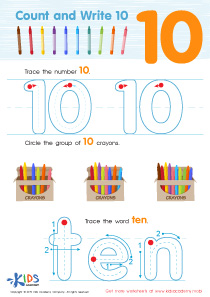Normal Numbers 11–20 Worksheets for Ages 4-5
4 filtered results
-
From - To
Introducing our vibrant, engaging "Normal Numbers 11–20" worksheets, specially designed for children Ages 4-5. These worksheets are crafted to introduce young learners to the fascinating world of numbers beyond ten. Through a series of fun, interactive activities, children will explore, recognize, and practice numbers 11 through 20 in a supportive and enjoyable environment. Tailored to captivate and educate Ages 4-5, these worksheets lay a strong foundation in early numeracy skills, ensuring kids grasp these essential concepts with ease and confidence. Dive into our "Normal Numbers 11–20" collection and watch your little ones delight in the magic of numbers!
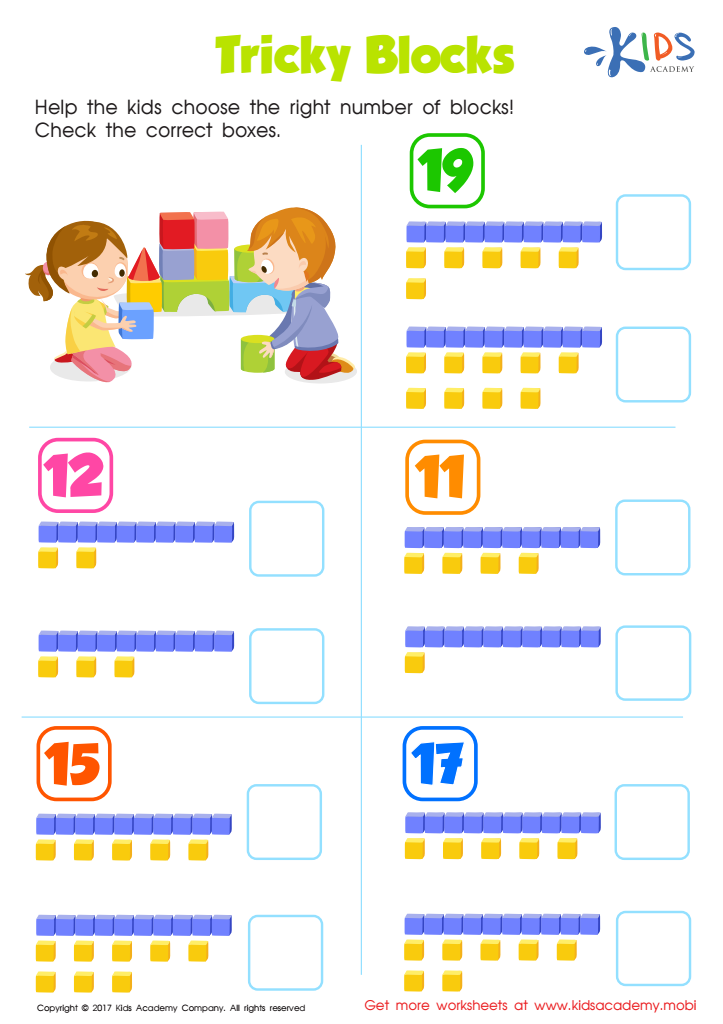

Tricky Blocks Worksheet
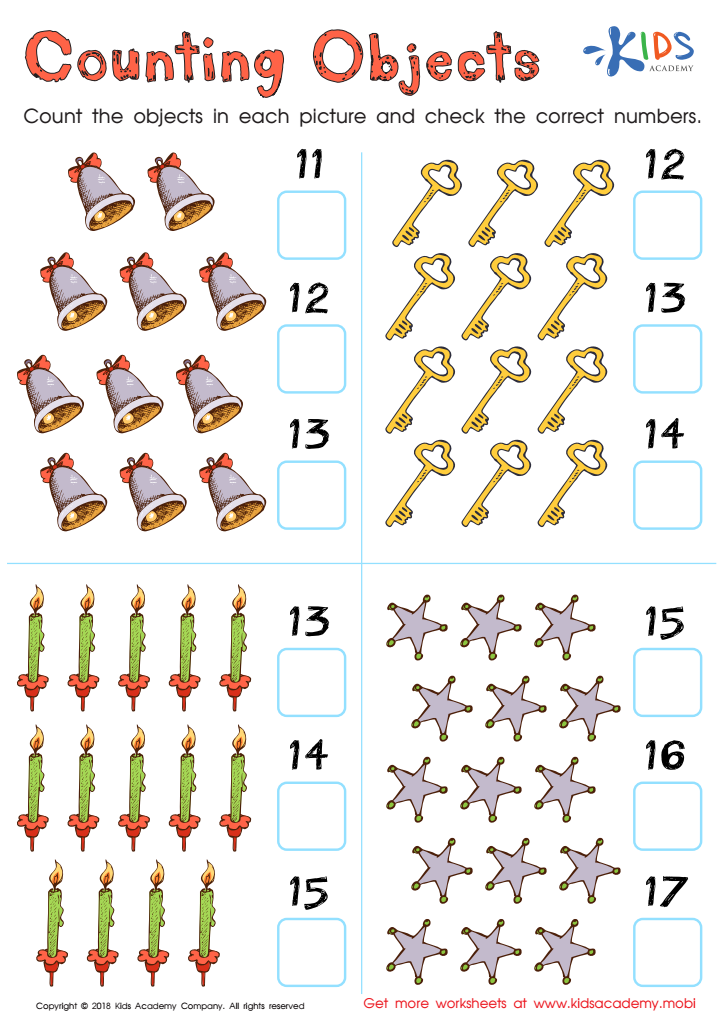

Counting Numbers Worksheet For Kindergarten
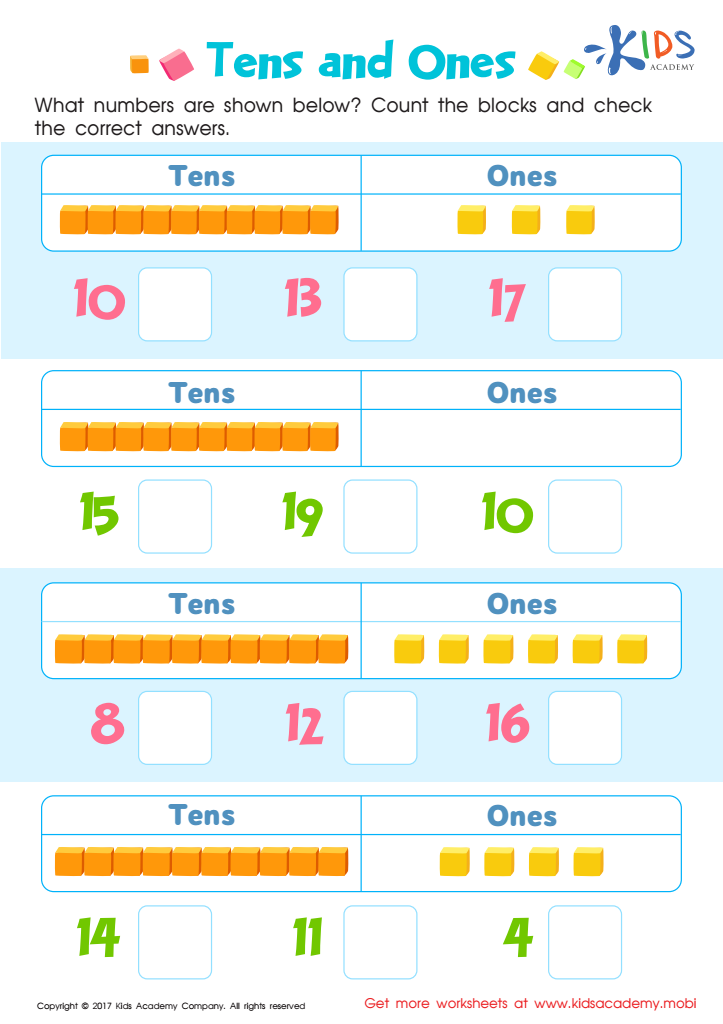

Tens and Ones Worksheet
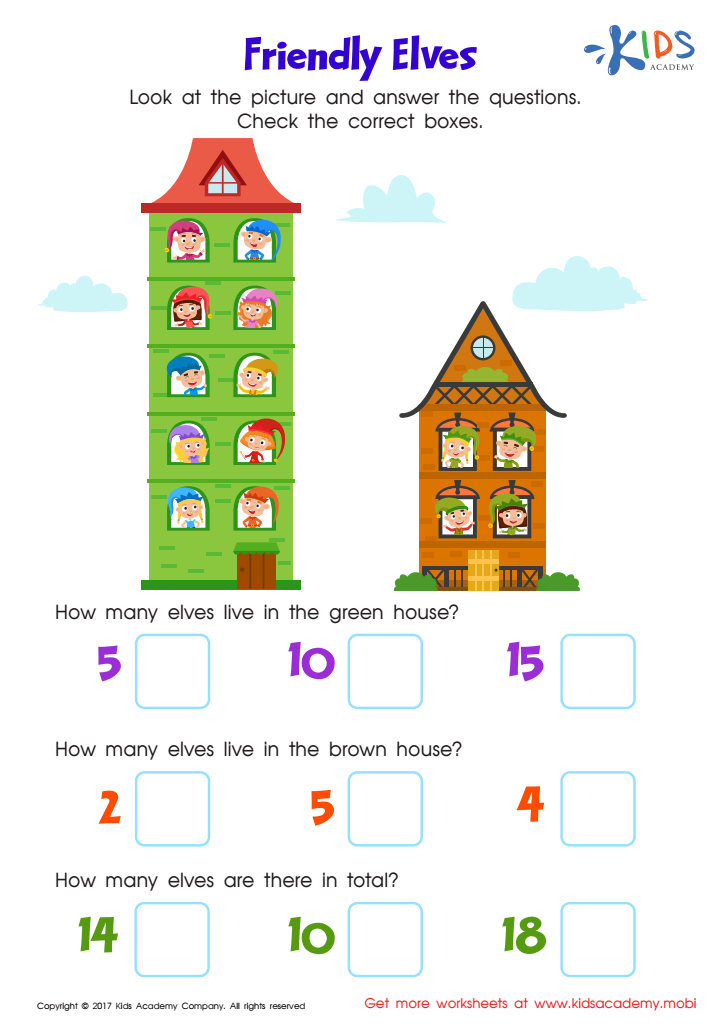

Place Value: Friendly Elves Worksheet
Normal Numbers 11–20 worksheets are invaluable tools designed explicitly for children aged 4-5, playing a critical role in their early educational development. These worksheets offer a structured and engaging way for young learners to grasp the concept of numbers beyond the basic 1-10, expanding their mathematical understanding and laying a solid foundation for future numerical skills.
Engaging with Normal Numbers 11–20 for Ages 4-5 helps children in this pivotal age group to develop their counting abilities, recognize number sequences, and start to understand simple addition and subtraction, which are essential skills in their mathematical journey. The age-appropriate challenges presented in these worksheets are specifically tailored to the cognitive and motor skills of 4-5-year-olds, making learning not just effective but also enjoyable.
Moreover, these worksheets are crafted to encourage self-confidence in young learners. By successfully completing tasks related to numbers 11-20, children gain a sense of achievement, which motivates them to explore and learn more. This positive reinforcement helps in nurturing a love for mathematics from an early age, setting a strong groundwork for their academic future.
In summary, Normal Numbers 11–20 worksheets for Ages 4-5 are essential in making the learning process both fun and fruitful, ensuring that children are well-equipped with the necessary numerical skills as they progress through their educational journey.
 Assign to My Students
Assign to My Students










